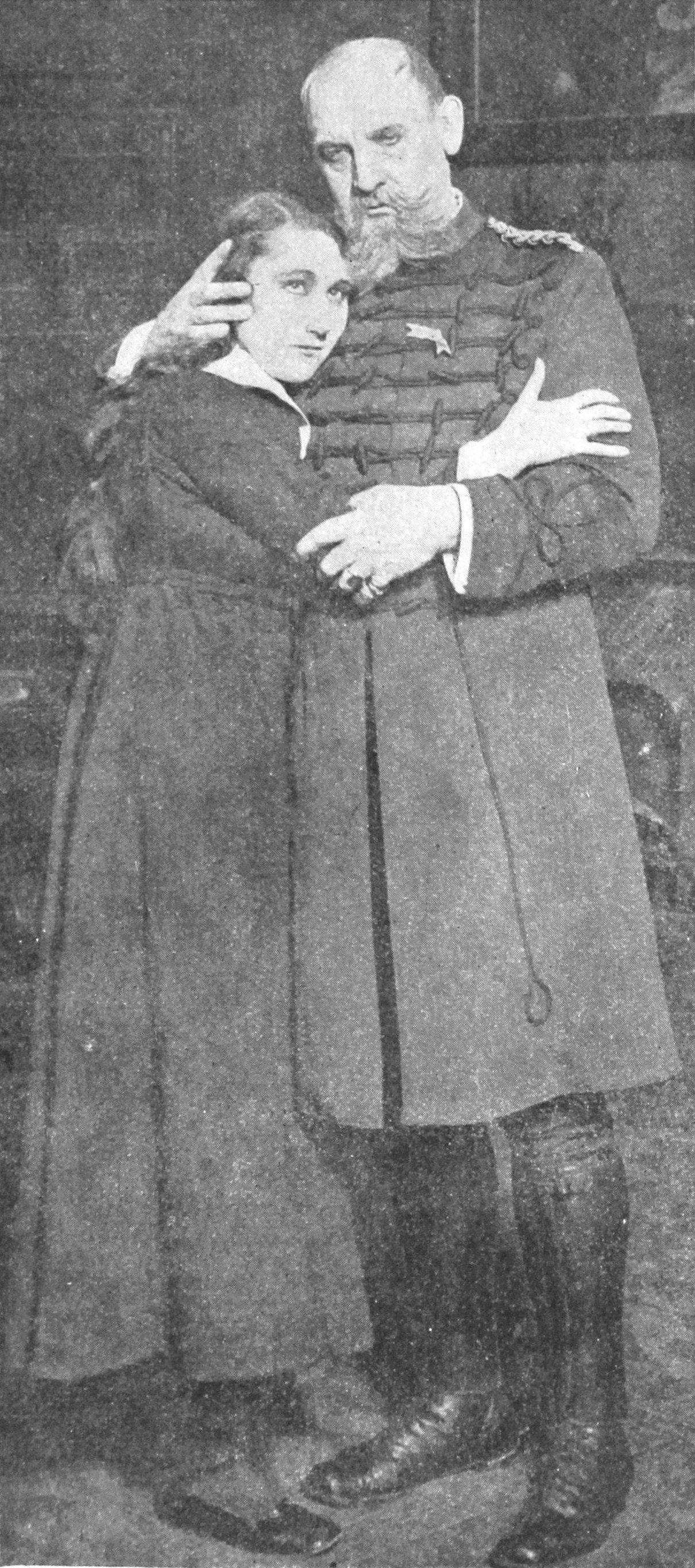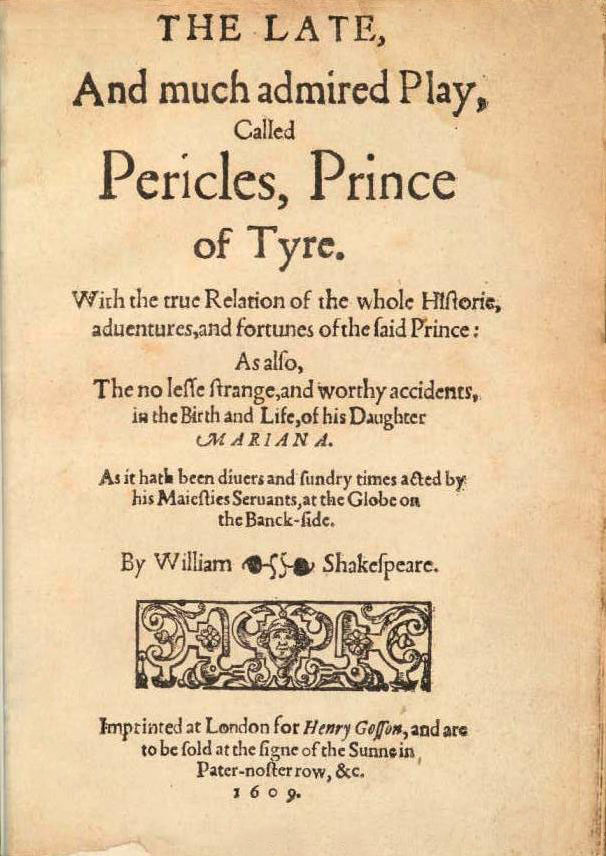|
Jerry Turner (theater Director)
Jerry Turner (1927–2004) served as artistic director of the Oregon Shakespeare Festival from 1971 to 1991. He transformed the festival from a summer program for semi-professional actors into one of the top regional theaters in the country by leading the Ashland, Oregon-based company beyond its Shakespearean repertoire. He produced plays by Bertold Brecht, Henrik Ibsen, George Bernard Shaw, and August Strindberg and added the Angus Bowmer Theatre in 1970 and the Black Swan in 1977 to the festival's original theater, the Elizabethan Stage (Oregon Shakespeare Festival), Elizabethan Stage. Biography Jerry Turner was born in Loveland, Colorado during 1927. Turner earned a BA and MA at the University of Colorado and a PhD in theatre from the University of Illinois. He began his career at OSF as an actor in 1957 and as a director in 1959. From 1957 to 1964 he also was associate professor of drama and department chairman at Humboldt State University, Humboldt State College and from 1964 ... [...More Info...] [...Related Items...] OR: [Wikipedia] [Google] [Baidu] |
Jerry Turner
Jerry Turner may refer to: * Jerry Turner (theater director) (1927–2004), artistic director of the Oregon Shakespeare Festival, 1971–1991 * Jerry Turner (anchorman) (1929–1987), American television news anchorman * Jerry Turner (American football) (born 1978), arena football player * Jerry Turner (baseball) (born 1954), former Major League Baseball outfielder * Jerry Turner (politician) (born 1941), American politician in Mississippi See also *Gerry Turner (1921–1982), children's author *Gerald Turner, academic administrator *Jeremy Turner (other) {{hndis, Turner, Jerry ... [...More Info...] [...Related Items...] OR: [Wikipedia] [Google] [Baidu] |
King Lear
''King Lear'' is a tragedy written by William Shakespeare. It is based on the mythological Leir of Britain. King Lear, in preparation for his old age, divides his power and land between two of his daughters. He becomes destitute and insane and a proscribed crux of political machinations. The first known performance of any version of Shakespeare's play was on Saint Stephen's Day in 1606. The three extant publications from which modern editors derive their texts are the 1608 quarto (Q1) and the 1619 quarto (Q2, unofficial and based on Q1) and the 1623 First Folio. The quarto versions differ significantly from the folio version. The play was often revised after the English Restoration for audiences who disliked its dark and depressing tone, but since the 19th century Shakespeare's original play has been regarded as one of his supreme achievements. Both the title role and the supporting roles have been coveted by accomplished actors, and the play has been widely adapted. In his ' ... [...More Info...] [...Related Items...] OR: [Wikipedia] [Google] [Baidu] |
Rosmersholm
''Rosmersholm'' () is a play written by Norwegian playwright Henrik Ibsen in Danish—the common written language of Denmark and Norway at the time—and originally published in 1886 in Copenhagen by the Danish publisher Gyldendal. ''Rosmersholm'' has been described as one of Ibsen's darkest, most complex, subtle, beautiful, mystical, multilayered and ambiguous plays. The play explores the tension between old and new, and between liberation and servitude. ''Rosmersholm'' and '' The Wild Duck'' are "often to be observed in the critics' estimates vying with each other as rivals for the top place among Ibsen's works." McFarlane, James (1999). "Introduction". In: Ibsen, Henrik, ''An Enemy of the People; The Wild Duck; Rosmersholm''. Oxford World Classics. Oxford, England: Oxford University Press. p. ix. , . Characters *Johannes Rosmer, a former clergyman and owner of Rosmersholm, a manor *Rebecca West, a resident at Rosmersholm *Professor Kroll, Rosmer's brother-in-law *Ulrik Brendel, ... [...More Info...] [...Related Items...] OR: [Wikipedia] [Google] [Baidu] |
Peer Gynt
''Peer Gynt'' (, ) is a five- act play in verse by the Norwegian dramatist Henrik Ibsen published in 1876. Written in Norwegian, it is one of the most widely performed Norwegian plays. Ibsen believed ''Per Gynt'', the Norwegian fairy tale on which the play is loosely based, to be rooted in fact, and several of the characters are modelled after Ibsen's own family, notably his parents Knud Ibsen and Marichen Altenburg. He was also generally inspired by Peter Christen Asbjørnsen's collection of Norwegian fairy tales, published in 1845 (''Huldre-Eventyr og Folkesagn''). ''Peer Gynt'' chronicles the journey of its title character from the Norwegian mountains to the North African desert and back. According to Klaus Van Den Berg, "its origins are romantic, but the play also anticipates the fragmentations of emerging modernism" and the "cinematic script blends poetry with social satire and realistic scenes with surreal ones."Klaus Van Den Berg, "Peer Gynt" (review), ''Theatre Journal ... [...More Info...] [...Related Items...] OR: [Wikipedia] [Google] [Baidu] |
Ghosts (play)
''Ghosts'' ( no, Gengangere) is a play by the Norwegian playwright Henrik Ibsen. It was written in 1881 and first staged in 1882 in Chicago, Illinois, in a production by a Danish company on tour. Like many of Ibsen's plays, ''Ghosts'' is a scathing commentary on 19th-century morality. Because of its subject matter, which includes religion, venereal disease, incest, and euthanasia, it immediately generated strong controversy and negative criticism. Since then the play has fared better, and is considered a “great play” that historically holds a position of “immense importance”. Theater critic Maurice Valency wrote in 1963, "From the standpoint of modern tragedy ''Ghosts'' strikes off in a new direction.... Regular tragedy dealt mainly with the unhappy consequences of breaking the moral code. ''Ghosts'', on the contrary, deals with the consequences of not breaking it." Characters * Mrs. Helen Alving, a widow * Oswald Alving, her son, a painter * Pastor Manders, an old fri ... [...More Info...] [...Related Items...] OR: [Wikipedia] [Google] [Baidu] |
The Father (Strindberg)
''The Father'' ( sv, Fadren) is a naturalistic tragedy by Swedish playwright August Strindberg, written in 1887. It is about the struggle between parents over the future of their child; resulting in the mother, using her cunning manipulative skills, subduing and finally destroying the father. Plot Captain Adolph, an officer of the cavalry, and his wife, Laura, have a disagreement regarding the education of their daughter Bertha. Laura wants her to stay at home and become an artist, while Adolph wants Bertha to move into town and study to be a teacher. Adolph says that his decision is final, and that the law supports him, because, he points out, the woman sells her rights when she agrees to be married. The argument grows and becomes fierce. Laura, cunning & manipulative, suggests that Adolph may in fact have no rights in the matter. Laura lies to the family doctor that Adolph may be mad, because, as an amateur scientist, he thinks he has discovered life on another planet by lo ... [...More Info...] [...Related Items...] OR: [Wikipedia] [Google] [Baidu] |
An Enemy Of The People
''An Enemy of the People'' (original Norwegian title: ''En folkefiende''), an 1882 play by Norwegian playwright Henrik Ibsen, followed his previous play, ''Ghosts'', which criticized the hypocrisy of his society's moral code. That response included accusations of both ''Ghosts'' and its author being "scandalous," "degenerate," and "immoral." In ''An Enemy of the People'', a man dares to expose an unpalatable truth publicly and is punished for it. However, Ibsen took a somewhat skeptical view of his protagonist, suggesting that he may have gone too far in his zeal to tell the truth. Ibsen wrote to his publisher: "I am still uncertain as to whether I should call 'An Enemy of the People''a comedy or a straight drama. It may avemany traits of comedy, but it also is based on a serious idea." Plot overview Act I Dr. Thomas Stockmann is the medical officer of a recently opened spa in a small town. The play begins with a dinner party hosted by Dr. Stockmann and his wife, Katrine. Th ... [...More Info...] [...Related Items...] OR: [Wikipedia] [Google] [Baidu] |
The Dance Of Death
The ''Danse Macabre'' (; ) (from the French language), also called the Dance of Death, is an artistic genre of allegory of the Late Middle Ages on the universality of death. The ''Danse Macabre'' consists of the dead, or a personification of death, summoning representatives from all walks of life to dance along to the grave, typically with a pope, emperor, king, child, and laborer. The effect was both frivolous, and terrifying; beseeching its audience to react emotionally. It was produced as ''memento mori'', to remind people of the fragility of their lives, and how vain were the glories of earthly life. Its origins are postulated from illustrated sermon texts; the earliest recorded visual scheme was a now-lost mural at Holy Innocents' Cemetery in Paris dating from 1424 to 1425. Background Historian Francis Rapp (1926–2020) writes that "''Christians were moved by the sight of the Infant Jesus playing on his mother's knee; their hearts were touched by the Pietà; and patr ... [...More Info...] [...Related Items...] OR: [Wikipedia] [Google] [Baidu] |
The White Devil
''The White Devil'' (full original title: ''The White Divel; or, The Tragedy of Paulo Giordano Ursini, Duke of Brachiano. With The Life and Death of Vittoria Corombona the famous Venetian Curtizan'') is a tragedy by English playwright John Webster (c. 1580 – c. 1634). According to Webster's own preface to the 1612 Quarto Edition"To the Reader" the play's first performance in that year was a notorious failure; he complained that the play was acted in the dead of winter before an unreceptive audience. The play's complexity, sophistication, and satire made it a poor fit with the repertory of Queen Anne's Men at the Red Bull Theatre, where it was first performed. It was successfully revived in 1630 by Queen Henrietta's Men at the Cockpit Theatre and published again in 1631. Background The story is loosely based on an event in Italy thirty years prior to the play's composition: the murder of Vittoria Accoramboni in Padua on 22 December 1585. Webster's dramatisation of this event ... [...More Info...] [...Related Items...] OR: [Wikipedia] [Google] [Baidu] |
Pericles Prince Of Tyre
''Pericles, Prince of Tyre'' is a Jacobean era, Jacobean play written at least in part by William Shakespeare and included in modern editions of his collected works despite questions over its authorship, as it was not included in the First Folio. It was published in 1609 as a quarto, was not included in Shakespeare's collections of works until the third folio, and the main inspiration for the play was Gower's ''Confessio Amantis''. Various arguments support the theory that Shakespeare was the sole author of the play, notably in DelVecchio and Hammond's The Cambridge Shakespeare, Cambridge edition of the play, but modern editors generally agree that Shakespeare was responsible for almost exactly half the play — 827 lines — the main portion after scene 9 that follows the story of Pericles and Marina. Modern textual studies suggest that the first two acts, 835 lines detailing the many voyages of Pericles, were written by a collaborator, who may well have been the Licensed victu ... [...More Info...] [...Related Items...] OR: [Wikipedia] [Google] [Baidu] |
Mother Courage And Her Children
''Mother Courage and Her Children'' (german: Mutter Courage und ihre Kinder, links=no) is a play written in 1939 by the German dramatist and poet Bertolt Brecht (1898–1956), with significant contributions from Margarete Steffin. Four theatrical productions were produced in Switzerland and Germany from 1941 to 1952, the last three supervised and/or directed by Brecht, who had returned to East Germany from the United States. Several years after Brecht's death in 1956, the play was adapted as a German film, '' Mutter Courage und ihre Kinder'' (1961), starring Helene Weigel, Brecht's widow and a leading actress. ''Mother Courage'' is considered by some to be the greatest play of the 20th century, and perhaps also the greatest anti-war play of all time. Critic Brett D. Johnson points out, "Although numerous theatrical artists and scholars may share artistic director Oskar Eustis's opinion that Brecht's masterpiece is the greatest play of the twentieth century, productions of ''Mothe ... [...More Info...] [...Related Items...] OR: [Wikipedia] [Google] [Baidu] |





.jpg)

